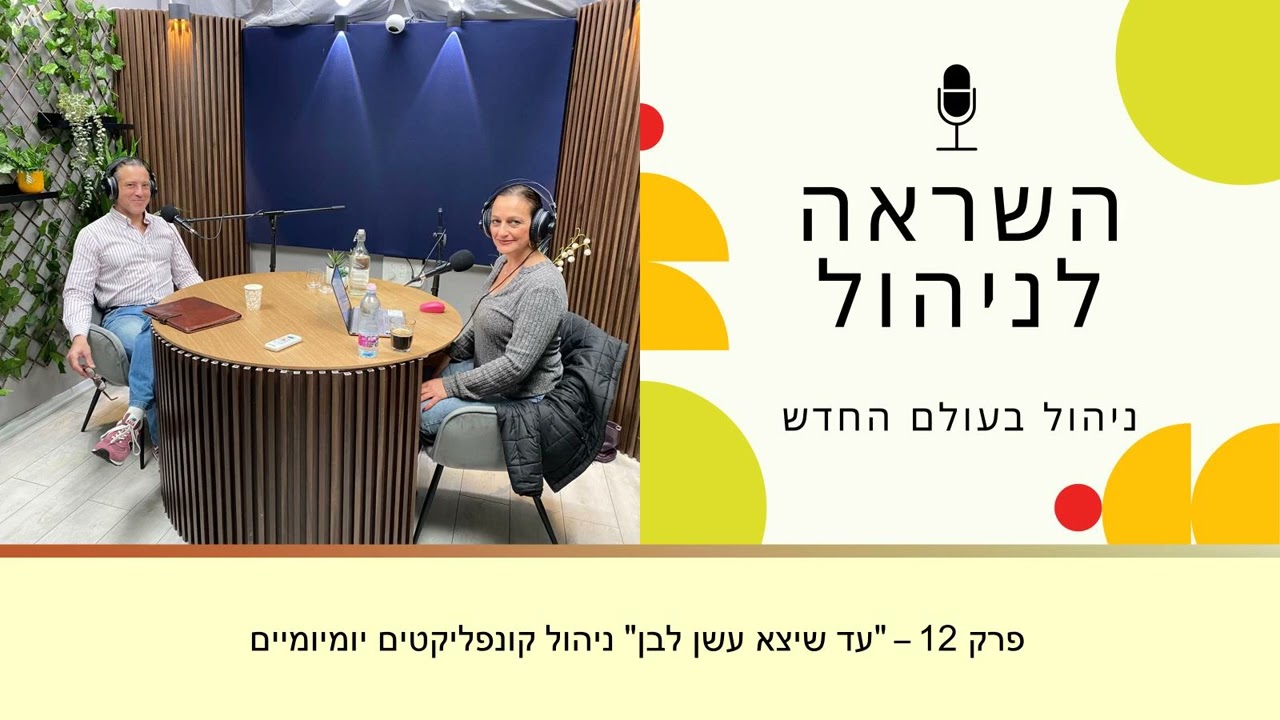"Until white smoke comes out" daily conflict management - with Asaf Shani
Conflicts, certainly in today's reality, exist in every area of our lives - in our careers, at home, with friends. If we talk about the managerial/professional field, all the more, today's complex organizations and the challenges in today's world create a lot of conflicts that managers have to deal with.
Often it becomes a significant part of our day.
In most negotiation courses and workshops, we are taught to think "win-win" and strive for "win-win" as a basis for solving these conflicts. If we can show the other side that it is possible to increase the pie for both of us, it will be easier to reach an agreement. For this we need to understand the deeper motives, the interests of the other side, that is, not to be satisfied with the "position" presented by the other side, but to look at the hidden layer. What do they really want to achieve? Of money ? (/security), recognition? (/affiliations).
But there is another thing - for this we also need the side in front of us to understand and want to reach a win-win.
The big problem is that in the field, it is not always possible.
Against this background, it was very important for me to record this episode, the topic of which is daily conflict management in our role, as a guest who not only teaches conflict management, but actually perfrom it.
And this is how I met Assaf Shani.
Assaf has been involved in mediation for over 25 years. He specializes in intra-organizational business mediation, leading "agreement building" processes and training in conflict management and negotiation.
Has a bachelor's degree in accounting and economics, a master's degree in law and an additional master's degree in philosophy. Wrote 8 books.
Very quickly in the first conversation with Assaf I realized that the fact that he comes from a daily career of managing and mediating conflicts is really a game changer.
In this fascinating episode, you will hear about conflict management from someone who knows what really works.
Assaf brings all his vast experience in mediation to a conflict management model that he defines as "I win" that he believes and knows works better (when you practice 😊).
So what are the biggest challenges in conflict management and why is it so difficult?Is win-win a realistic model in most conflicts?What is the "I win" model and how/when can it help us?
About all this and more, in this special episode, which may be a bit of a convention breaker, but the most connected to the field.
To listen:



